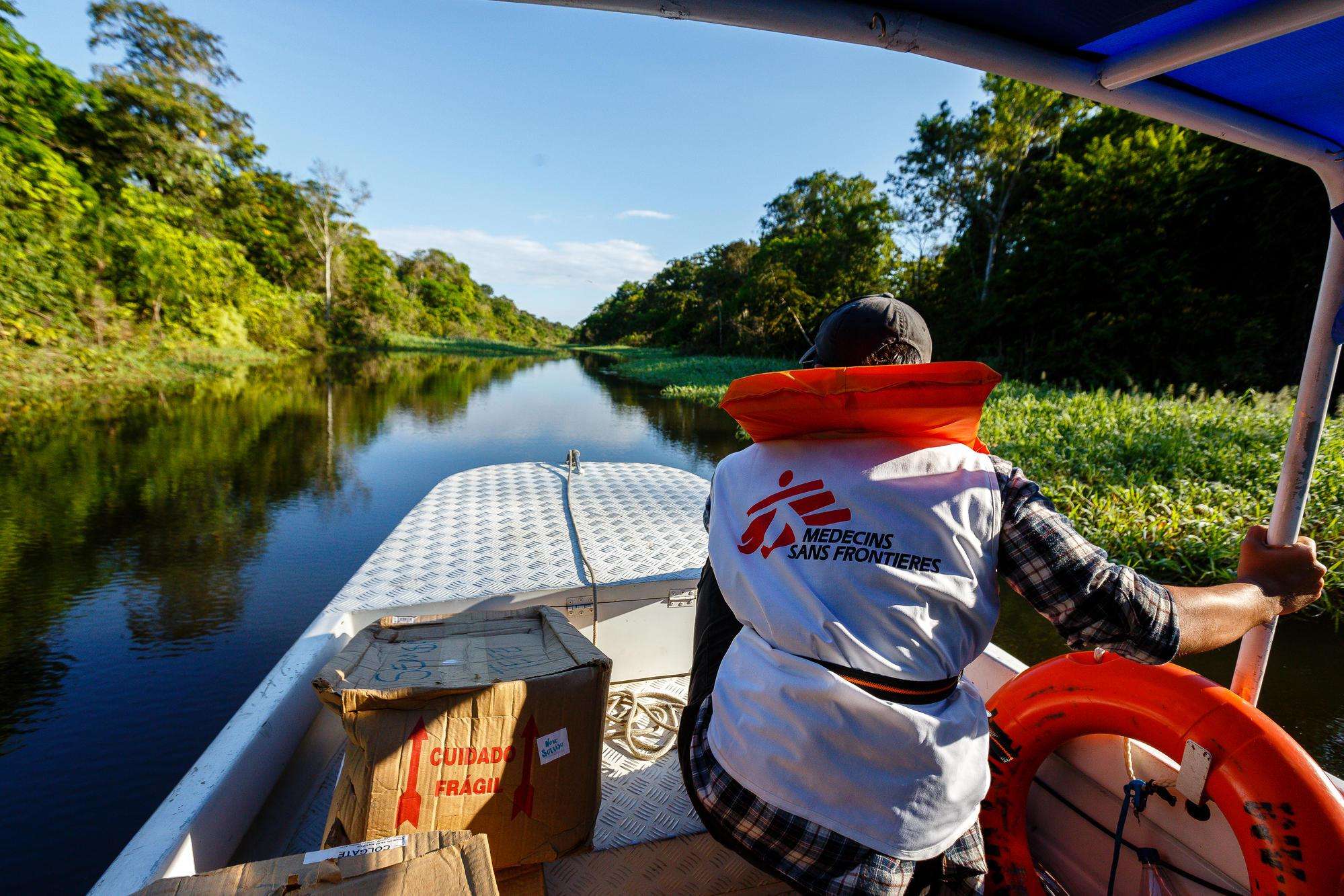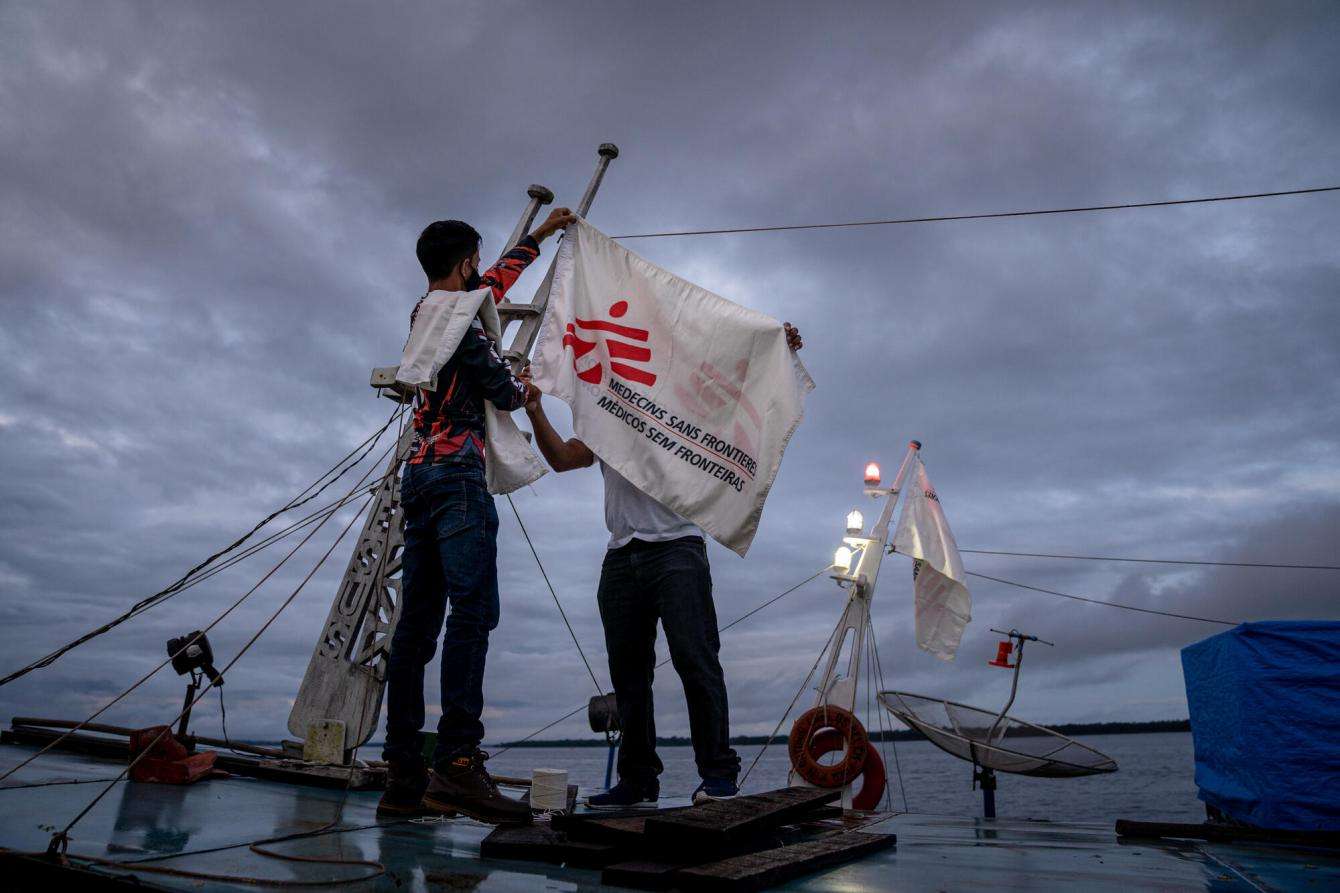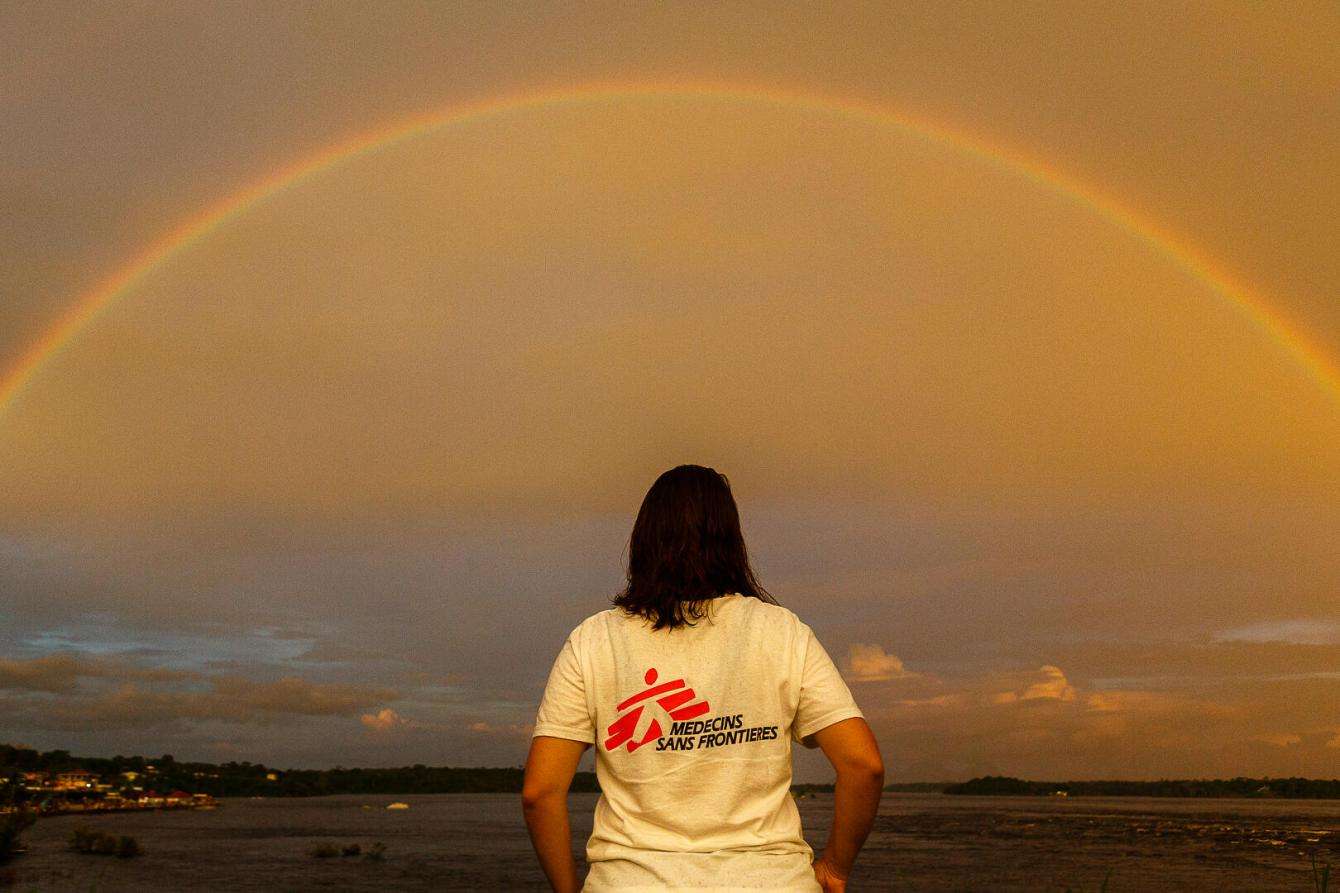
Brazil 2020 © Diego Baravelli
Last month, we asked Insight Panelists to share your most pressing questions about our work. Our team was so inspired by your thoughts, we sat down to answer a few questions that were asked most frequently.
How does MSF operate in hostile environments?
We have to keep an open dialogue with the various sides of a conflict. We explain who we are and also who we are not, making it clear that we are independent and neutral, not part of any government or international system.
Further, we maintain solid communication with the community around us. In the places we work, security always involves a huge amount of coordination to maintain the closest possible contact with all actors on the ground. That means local government, rebel groups, local religious groups, anybody who's anybody, really.
You make the rounds and speak with as many people as possible—every single day you're collecting information and trying to verify, re-verify, and cross-check. It’s important to remember that contexts change all the time, but incidents usually don’t happen randomly. Usually there's some type of precursor or warning to potential threats or incidents.
At the end of the day, our most important tool is communication.

How do you keep staff safe?
We negotiate to create space where we can implement our programs, setting up a facility, for instance, or running a mobile clinic. The more the parties understand what we’re doing, the better. Safety can never be guaranteed, but it can be improved.
If the threats reach a certain level, we adjust our rules and our activities accordingly. Health-seeking behavior changes in such situations; only the seriously sick or injured risk a trip to a hospital. So we can reduce the team, keeping only personnel who work on direct lifesaving procedures.
There are also behavioral things we can do to reduce at risk—implementing curfews for staff, for example, or avoiding certain neighborhoods.
Given the vast array of needs, how do you decide what and where to focus?
We are always evaluating, analyzing, and reorienting our work depending on circumstances. Our decision to intervene in any given situation is always based on our own independent, on-the-ground assessment of the needs.
Emergency is in MSF’s DNA. Over 50 years of medical humanitarian work we’ve learned to be ready to respond at a moment’s notice, from prepositioning emergency medical supplies and logistics materials to keeping the right staff with the right expertise on deck and ready to respond.
In terms of priorities, we have to manage our projects according to the evolving contexts and changing needs on the ground. For example, South Sudan is a large country with a complex context and huge health needs, some linked to conflict, some not. We have to manage the programs as efficiently as possible, take care of the security of our staff—that is always a priority! —and be ready to react to any new situations that arise, all while making sure we’re providing the highest quality medical care possible.

Where do you find hope?
The world’s humanitarian needs can sometimes seem insurmountable. But they also make humanitarian action very meaningful because sometimes it is the only hope that people have. In the absence of political solutions to many of the world’s most complex problems, we can still help people survive, grow, and live. There’s nothing more useful in these moments than many of the things MSF provides like medical care, water, and food. That’s hope.
How you can help
Not everyone can treat patients in the field. But everyone can do something.
Some humanitarian crises make the headlines—others don’t. Unrestricted support from our donors allows us to mobilize quickly and efficiently to provide lifesaving medical care to the people who need it most, whether those needs are in the spotlight or not. And your donation is 100 percent tax-deductible.



